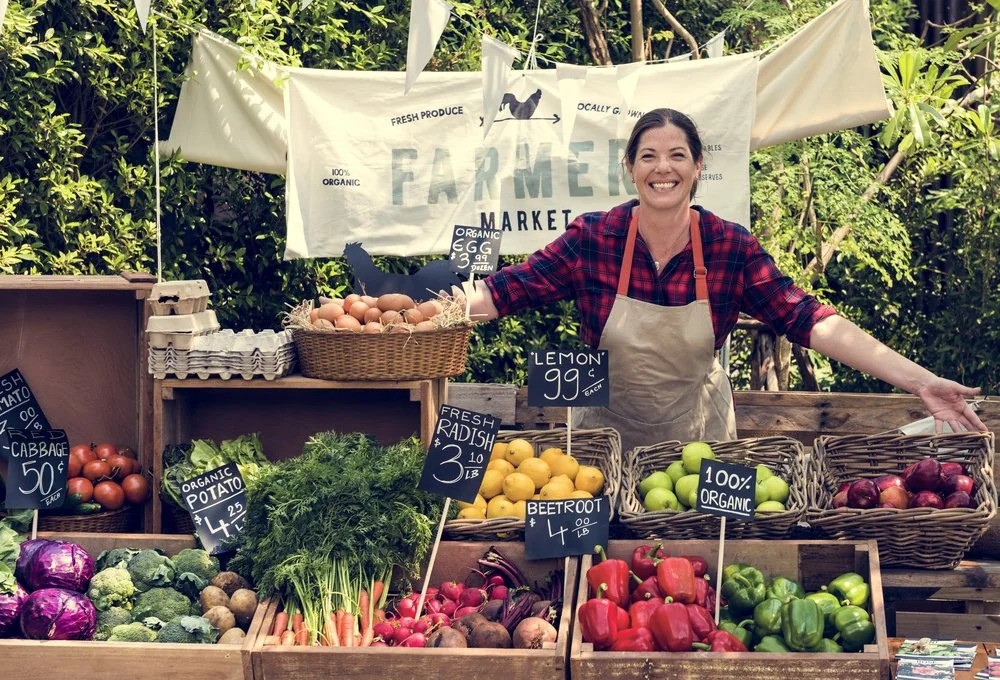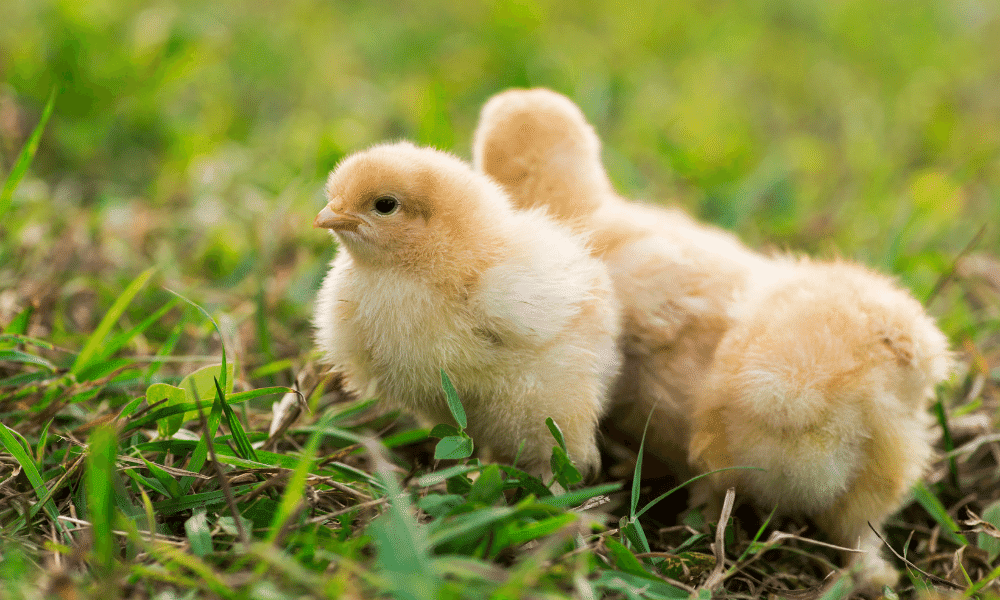Baby Chick Health: Essential Chick Feeding Considerations and Tips
Raising baby chicks can be a rewarding and enjoyable experience. However, it's important to understand the basics of feeding, selecting the right chick feed and caring for them to ensure their health and growth. Whether you have buff orpington chicks or light brahma chicks, regardless of the breed you must consider proper feeding techniques and diet. In this article, we'll cover fundamentals about what you need to know about feeding baby chicks, including the best food options, proper feeding techniques, and important considerations for their diet. But we’ll also cover some tips to avoid some of the pitfalls that newer poultry owners have experienced unexpectedly.
The Importance of Proper Nutrition for Baby Chicks
Just like any other animal, proper nutrition is crucial for the growth and development of baby chicks. During their first few weeks of life, they are highly vulnerable and require a balanced diet to support their rapid growth. A lack of proper nutrition can lead to stunted growth, weakened immune systems, and other health issues.
Choosing the Right Food for Baby Chicks
The best food for baby chicks is a high-quality chick starter feed. This feed is specifically formulated to meet the nutritional needs of growing chicks and is available in both medicated and non-medicated options. Medicated feed contains a small amount of medication to help prevent common chick illnesses, while non-medicated feed is suitable for chicks that are not at risk for these illnesses.
It's important to note that baby chicks should not be fed adult chicken feed, as it does not contain the necessary nutrients for their growth and can lead to health issues.
Important Safety Tips - Separating Baby Chicks by Size and Health Condition
Size Matters
When raising a flock of baby chicks, you may notice that some chicks are larger and more dominant than others. In order to prevent bullying, injury, and stress within the flock, it is recommended to separate baby chicks by size. In fact, many chicken breeders separate by chicken breeds for proactive safety measures, but also due to the feeding differential for certain bantam breeds. It's a good consideration to grind the chick feed to smaller crumbs to make it easier to consume by some breeds like the serama chickens or bantam cochins.
Separating baby chicks by size is an important step to ensure their safety and well-being, regardless of their breed. While it's clear that you would separate your bantam chicks like silkie chicks from the brahma chicken breed, consider that you might also separate standard size poultry from each other. Keep a close eye on sizing differential between the babies with the same breeds too as there are always runts in the pack with standard size poultry. Serama chickens, bantam cochin chicks and other bantam breeds are considerably smaller chickens, and are recommended to have separate chick brooders.
By providing separate chicken brooders or spaces based on their size, you can create a more harmonious and secure environment for each individual chick. Your new baby chicks are fragile little creatures who need constant food. A careful eye that all of the chicks are getting their share of their chick feed and not bullied due to their size is critical. Trampling in and around food area is also critical to keep an eye on. A constant trampling to a younger baby chick can cause serious injury and in some cases death.
Marketplace
You might also be interested in...

Shop for chickens, livestock or other farm goods

About Farm Expo Events

Sell Your Chicks and Eggs
Health Conditions
Separating baby chicks by health condition is another important aspect of their care. It is common for some chicks to be weaker or have underlying health issues compared to others. By separating these chicks from the rest of the flock, you can provide them with the extra care and attention they need.
Separating weak or sick chicks serves multiple purposes. Firstly, it prevents the spread of diseases or infections within the flock. Weak chicks are more susceptible to illnesses, and separating them reduces the risk of transmission to healthier chicks. Secondly, separating weak chicks allows you to closely monitor their health and provide specialized care. You can provide them with appropriate medication, supplements, or extra warmth if needed. This individualized attention increases their chances of recovery and ensures their well-being.
When setting up separate enclosures or spaces for weak chicks, make sure they have access to the necessary amenities such as food, water, and warmth. It's important to create a comfortable and stress-free environment for them to recover and grow stronger. Regularly monitor the health condition of the weak chicks. If you notice any improvement or if their condition worsens, consult a veterinarian for further guidance and medical intervention.
Remember, the goal of separating chicks by health condition is to provide the best care possible for each individual chick. By doing so, you contribute to their overall well-being and increase their chances of thriving alongside their flock mates.
Feeding Techniques for Baby Chick
When it comes to feeding baby chicks, there are a few important techniques to keep in mind.
First, it's important to provide fresh food and water at all times. Baby chicks have small stomachs and need to eat frequently, so make sure to check their food and water supply multiple times a day.
Second, it's important to use a feeder specifically designed for baby chicks. These feeders have smaller openings and are designed to prevent chicks from wasting food or getting injured. Elevate the chick feeder to a height they can still reach their food and water, but high enough so that it reduces debris and dirt from their playing and kicking.
Finding the best chicken feeder can be a challenge. Make sure to use chick feeding trays made for baby chicks. Avoid an automatic chicken feeder where baby chicks can get stuck inside the contraption. Or an excessively deep chicken feeder or bowl used for water.
Finally, it's important to monitor the amount of food your chicks are eating. If they are consistently leaving food in their feeder, it may be a sign that they are not getting enough to eat. On the other hand, if they are constantly emptying their feeder, you may need to increase the amount of food you are providing.
Important Considerations for Baby Chick Diet
While chick starter feed is the main source of nutrition for baby chicks, before you buy chicks, there are a few other important considerations to keep in mind when it comes to their diet.
Chick Bedding
Brooders for chicks help keep them warm and comfortable while they grow from little fluff balls into full-grown chickens. Chick bedding is not just for comfort, it also plays a crucial role in their diet. Chicks will often peck at their bedding, which can provide them with additional nutrients and help with digestion. It's important to choose a bedding that is safe for chicks to ingest, such as pine shavings or straw.
Chick Water
Just like food, water is essential for the health and growth of baby chicks. It's important to provide clean, fresh water at all times. Make sure to use a waterer specifically designed for chicks, as they can easily drown in larger waterers. Additionally, it's important to monitor the temperature of the water, as chicks can become chilled if the water is too cold.
Treats
While chick starter feed should make up the majority of a chick's diet, it's okay to provide them with occasional treats. These can include small amounts of fruits, vegetables, or mealworms. However, it's important to not overdo it with treats, as they can fill up on them and not get the necessary nutrients from their feed.
Feeding Schedule for Baby Chicks
A consistent feeding schedule is important for the health and growth of baby chicks. Here is a general feeding schedule to follow:
Week 1: Feed chick starter feed 24/7
Week 2: Feed chick starter feed 12 hours on, 12 hours off
Week 3: Feed chick starter feed 8 hours on, 16 hours off
Week 4: Feed chick starter feed 4 hours on, 20 hours off
Week 5: Transition to a grower feed
It's important to note that this is a general schedule and may need to be adjusted based on the specific needs of your chicks.
Common Feeding Issues and How to Address Them
While feeding baby chicks may seem straightforward, there are a few common issues that can arise. Here are some of the most common feeding issues and how to address them.
Pasty Butt
Pasty butt is a condition where feces get stuck to a chick's vent, preventing them from being able to defecate. This can be caused by a variety of factors, including stress, poor nutrition, and dirty bedding. If you notice a chick with pasty butt, gently clean the area with warm water and a soft cloth. You may also need to adjust their diet or bedding to prevent it from happening again.
Cannibalism
Cannibalism is a serious issue that can occur in a flock of chicks. It's important to address this issue immediately, as it can quickly lead to the death of multiple chicks. Cannibalism can be caused by overcrowding, stress, or a lack of proper nutrition. To prevent this issue, make sure to provide enough space for your chicks, keep their environment clean and stress-free, and ensure they are getting a balanced diet.
Overeating
While it may seem counterintuitive, overeating can be a common issue for baby chicks. This can happen if they are given too much food at once or if they are constantly fed treats. Overeating can lead to health issues such as obesity and can also prevent them from getting the necessary nutrients from their feed. To prevent overeating, make sure to follow a consistent feeding schedule and limit treats to small amounts.
Feeding baby chicks may seem simple, but it's important to understand the best food options, proper feeding techniques, and important considerations for their diet. By following a consistent feeding schedule, monitoring their food and water supply, and addressing any issues that may arise, avoid heartaches, and you can ensure the health and growth of your baby chicks. With proper nutrition, your chicks will grow into healthy and happy adult chickens.
The fun doesn't have to end here.
Become a free Roobeez member for unlimited access to these features + more!
The Learning Library 📚
Get your hands on informational guides and expert advice on topics like livestock, homesteading, farming, small business, and more.
The Online Marketplace 🛍️
shop directly from your local small farms and artisans. As a seller, enjoy free advertisement and a dedicated storefront.
Exclusive Events 🎟️
Find local farm & homestead-related events. Experience the joy of local community connection!
You might also be interested in…






















Discover farmers markets near you with Roobeez! Explore local events, find seasonal and weekly markets, and shop fresh produce and handmade goods on our marketplace. Contribute to our growing directory by adding your favorite markets and community events. Supporting local has never been easier!